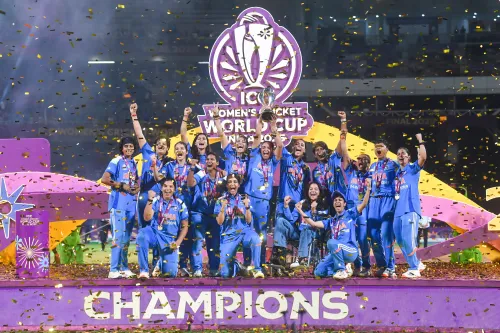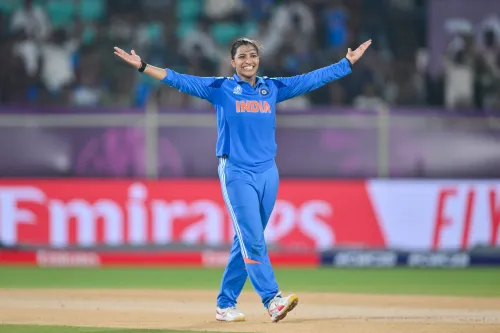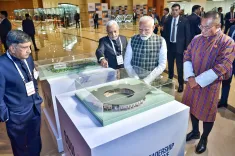Why is Amelie Mauresmo Defending the French Open's Night Session Policy?

Synopsis
Key Takeaways
- Amelie Mauresmo defends the scheduling of night sessions.
- All six night matches in 2025 have featured men's singles.
- Women's matches have faced criticism for lack of representation.
- Scheduling decisions are influenced by match duration.
- Mauresmo emphasizes the importance of audience expectations.
New Delhi, May 30 (NationPress) Roland-Garros tournament director Amelie Mauresmo has come to the defense of the French Open's choice to give precedence to men’s matches during the esteemed night sessions at Court Philippe-Chatrier, amidst significant criticism from WTA athletes such as Coco Gauff and Ons Jabeur.
To date, all six night matches at the 2025 French Open have showcased men’s singles contests. This ongoing trend has sparked a backlash, as women’s tennis continues to miss the prime-time limelight under the Parisian lights. Since the introduction of this format in 2021, only four women’s matches have been allocated to the night session.
World No. 3 Ons Jabeur expressed her discontent earlier this week, stating, “I don’t think they have daughters,” referring to the scheduling choices. Fellow American star Coco Gauff shared similar frustrations regarding the underrepresentation of women’s tennis in evening showcases.
However, Mauresmo, a former world No. 1, staunchly defended the tournament's position. In a media interaction, she remarked, “We have one single match per night session. It hasn't changed. Therefore, we won't alter everything again.”
She elaborated that the length of matches significantly influences scheduling, pointing out that the men’s best-of-five format guarantees longer games and greater value for fans purchasing tickets for the night slot. “The playtime is also considered, including potential playtime, given that we can’t plan ahead, whether it’s for women’s or men’s tennis,” she stated.
“We must also consider the 15,000 spectators attending the night session. Since men’s tennis is played in best-of-five sets, a minimum of three sets will be played. It complicates matters for us to proceed otherwise.”
On Thursday night, British No. 1 Jack Draper’s four-set victory over Gaël Monfils—lasting over three hours—marked yet another men’s matchup under the lights, underscoring the gender disparity in scheduling.
When questioned whether the consistent exclusion of women’s matches from the night session communicates that women are “not worthy,” Mauresmo categorically refuted such an implication.
“That’s not what we’re implying. I must stop you right there,” she firmly responded. “For me, the message remains unchanged, and it has never been that the girls are unworthy of playing at night. That has never been the case. I won’t accept that you convey this notion. It’s very clear to me.”









